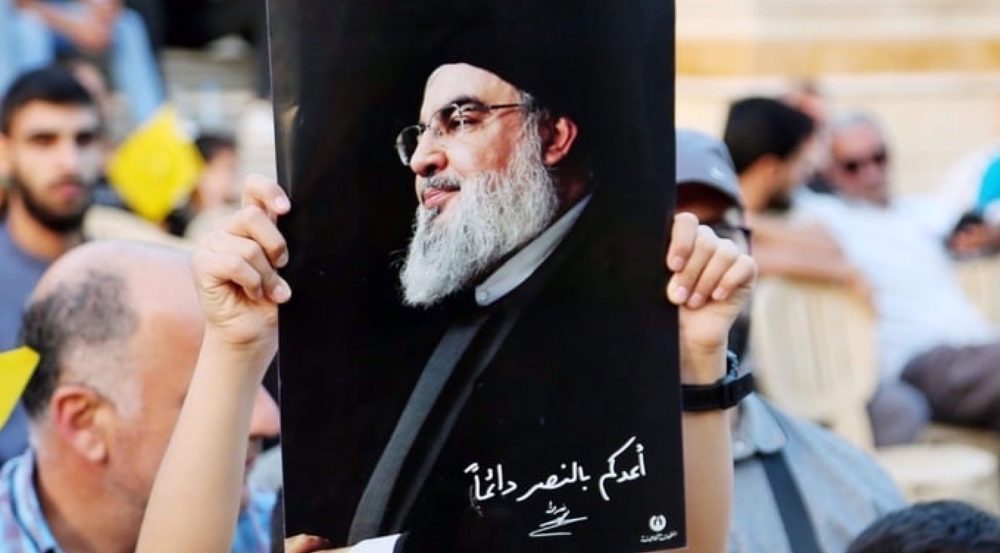In a series of tweets on Monday, Amal Saad, a lecturer at Cardiff University and expert on the Hezbollah resistance movement, said to think that the Lebanese resistance movement would crumble after the assassination of their leader is a “fundamental misreading.”
Sayyed Nasrallah was assassinated in an Israeli airstrike in the southern suburb of Beirut on Friday along with many of his associates in what has been widely described as a terrorist crime.
Saad said it’s difficult to quantify the extent of loss for the Lebanese movement and the Axis of Resistance as a whole but it does not imply that Hezbollah is anywhere near the verge of collapse.
“Israel and the US misunderstand the nature of his leadership—people didn’t support the cause because of him; they supported him because he personified their cause of justice and liberation, and while he was a revered figure, the cause he embodied will outlive him,” she stated.
She said the assumption that Hezbollah will collapse with the assassination of the movement’s leader is racist and reduces “a complex and deeply-rooted movement” to a single individual, “reinforcing a stereotype that such groups in the Middle East rely on charismatic "strongmen" rather than institutional strength, resilience, or popular grass-roots support.”
Viewpoint -How Sayyed Nasrallah redefined the art of resistance against Zionists and triumphed
— Press TV (@PressTV) September 30, 2024
By @bintmachgara https://t.co/Oa8DOrrr4B
“It reflects a broader Orientalist view that discounts the ability of non-Western organizations to function as sophisticated political or military entities, capable of enduring beyond the loss of one leader,” wrote the Lebanese political analyst known for her writings on the Axis of Resistance.
She referred to the continued operations of the Lebanese resistance movement against the Israeli occupation even after the assassination of Sayyed Hassan, saying it “highlights its operational continuity and the resilience of its command-and-control structure.”
“The reason Hezbollah has been able to withstand such significant losses is its exceptionally robust continuity of command, enabling a seamless transition of leadership even in times of severe crisis.”
Saad said the Israeli regime with the full backing and partnership of the United States “aimed to dismantle Hezbollah in one decisive strike”, and this campaign started with the assassination of high-ranking official Fuad Shukr in late July, followed by pager detonations.
“But it was Nasrallah’s killing that served as the key trigger intended to spark Hezbollah’s expected implosion. While Israel's push for a regional war seems evident, it's still uncertain whether the US is fully prepared to commit to such a course,” she wrote.
The Lebanese writer and analyst said it’s important to recall that the movement was “born out of war and invasion, shaping it into an organization with built-in resilience.”
“It’s designed to continually regenerate its leadership, producing new generations of military commanders. This resilience was most evident in 2008 when Hezbollah lost its senior military commander, Hajj Imad Mughniyeh, who was not just a foundational figure but the pioneer of the Resistance’s “New School of [hybrid] Warfare”,” she wrote.
A large banner depicting the martyred Hezbollah leader Sayyed Hassan Nasrallah has been installed in Tehran's Enghelab Square with the message reading "Hezbollah is alive". pic.twitter.com/YqWkg3mjBM
— Palestine Highlights (@PalHighlight) September 30, 2024
“Far from being weakened by his assassination, and the killing of his successor, Mustafa Badereddine in 2013, Hezbollah’s military capabilities have since grown exponentially, with its tactics being adopted by allies across the Resistance Axis.”
Since the assassination of Mughniyeh, Saad said, the movement has “implemented a sophisticated system of knowledge distribution at the operational level.”
“This distributed expertise ensures that the loss of any single leader, even one in a high-ranking position, does not create a critical gap in the group’s operational capabilities, allowing for rapid reorganization and continuity of operations,” she remarked.
“Hezbollah has made contingencies for multiple lines of commanders, so if the first is killed and replaced, the second can immediately step in, and if he too is killed, a third will take over, and so on. Several men are delegated with overlapping roles and tasks, ensuring that any void left by a fallen leader is quickly filled, allowing for rapid reorganization and seamless continuity of operations.”
However, she hastened to add that Sayyed Nasrallah’s assassination marks a “turning point.”
“The organization is navigating a critical transition phase, absorbing consecutive shocks while attempting to recuperate, reconfigure, and reorganize. It is likely revising both its grand strategy and military approach, shifting from its previous support front with Gaza to developing a new defense strategy that will likely focus on repelling Israel’s seemingly imminent ground invasion and forcing it to end its aerial aggression,” Saad wrote.
“At the same time, Hezbollah is
likely drawing up contingency plans for a broader "Great War"
strategy—one that would be offensively driven, should Israel and the US
seek to engulf the entire region in war.”
/129

